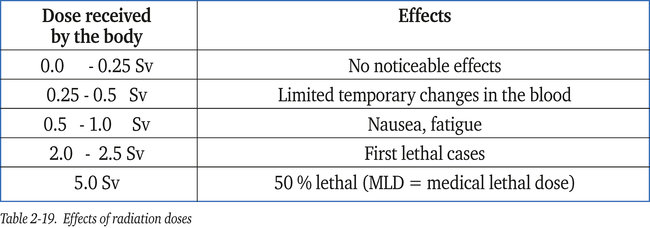
Radiation Effects on Human Health
The understanding of the effect that exposure to radiation has on human beings has grown over the past 50 years and has led to a substantial reduction of the maximum permissible dose. There are two categories of biological effects that an overdose of radiation can cause: somatic and genetic effects. Somatic effects are the physical effects. A reduction in the number of white blood cells is an example of a somatic effect. Much more is known about the somatic than about the genetic effects of radiation. Blood cells are very sensitive and the first signs of radiation are found in the blood, which is why people working in radiology are subjected to periodic blood tests.
The most serious effects of radiation occur when a large dose is received in a short period of time. The table shows doses received over 24 hours and their effects:
The consequences of excess radiation are not necessarily noticeable immediately after the irradiation. Frequently, they only show up after some time. The time lapse between irradiation and the moment the effects become apparent is called “the latent period”. Genetic effects can only be assessed over generations.


